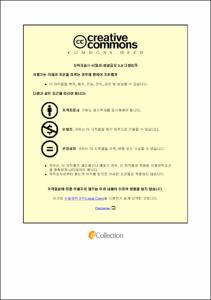이주노동자의 한국어능력과 사회적지지가 한국 생활만족도에 미치는 영향
- Alternative Title
- The Effect of Korean Linguistic Ability and Social Support on Life Satisfaction of Migrant Workers in Korea
- Abstract
- The purpose of this study was to investigate the effect of migrant workers' Korean language skills and social support on life satisfaction. The results according to the research question are as follows.
First, Korean proficiency was usually at the average level, followed by speaking, listening, and reading. The social support score was also recognized above average, and family support was the highest, followed by neighbor support and friend support. Life satisfaction was highly perceived by all migrant workers, followed by family relations, adaptation to the living environment, and job performance. By gender, women showed higher Korean proficiency, social support, and life satisfaction than men. In terms of nationality, China and Vietnam had high Korean language skills, followed by the Philippines, China, and Vietnam. Life satisfaction was higher in India than in Nepal. By age, those aged 40 or older had higher Korean language skills and social support, college graduates had higher Korean language skills, and high school graduates had higher social support and life satisfaction than other academic backgrounds. Migrant workers in office work had higher Korean language skills and social support than other industries, and in terms of life satisfaction, those in the manufacturing industry had higher life satisfaction. By length of stay, Korean language skills were high for more than five years, but social support and life satisfaction did not differ depending on the period. Depending on the type of visa, others showed higher Korean proficiency and social support than the employment permit system E9, and those with E9 visa showed higher life satisfaction. By Korean level, the upper group had higher Korean language skills, and in terms of social support and life satisfaction, the group among Korean language skills was higher than that of other groups. In the topic, the Korean language level 5 was high, and social support and life satisfaction differed according to the Korean level, but there was no difference in post-verification.
Second, there was a high positive correlation between Korean language proficiency, social support, and life satisfaction.
Third, as a result of the effect of Korean language ability and social support on life satisfaction, life satisfaction had a significant effect on social support, but there was no significant difference in Korean language ability.
- Issued Date
- 2022
- Awarded Date
- 2022. 2
- Type
- Dissertation
- Publisher
- 부경대학교
- Affiliation
- 부경대학교 대학원
- Department
- 대학원 수해양인적자원개발학과
- Advisor
- 박종운
- Table Of Contents
- I. 서론 1
1. 연구의 필요성 및 목적 1
2. 연구문제 5
3. 용어의 정리 6
II. 이론적 배경 9
1. 이주노동자 9
2. 한국어능력 16
3. 사회적지지 20
4. 생활만족도 24
Ⅲ. 연구방법 28
1. 연구대상 28
2. 측정도구 31
3. 자료수집 33
4. 자료처리 및 분석방법 34
IV. 연구결과 36
1. 한국어능력, 사회적지지, 생활만족도 평균 및 표준편차 36
2. 이주 노동자의 개인적 특성에 따른 분석결과 37
3. 한국어능력, 사회적지지, 생활만족도 상관관계 결과 64
4. 한국어능력과 사회적지지가 생활만족도에 미치는 영향 66
Ⅴ. 결론 및 논의 70
1. 결론 70
2. 논의 72
참고문헌 76
부록: 설문지 81
- Degree
- Master
- Appears in Collections:
- 대학원 > 수해양인적자원개발학과
- Files in This Item:
-
-
Download
 이주노동자의 한국어능력과 사회적지지가 한국 생활만족도에 미치는 영향.pdf
기타 데이터 / 2.1 MB / Adobe PDF
이주노동자의 한국어능력과 사회적지지가 한국 생활만족도에 미치는 영향.pdf
기타 데이터 / 2.1 MB / Adobe PDF
-
Items in Repository are protected by copyright, with all rights reserved, unless otherwise indicated.